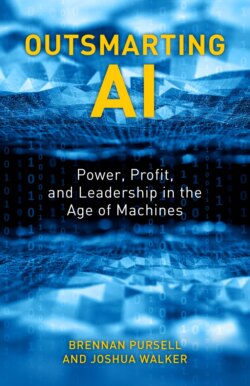Читать книгу Outsmarting AI - Brennan Pursell - Страница 15
На сайте Литреса книга снята с продажи.
Myth 5: AI Means Easy Money
ОглавлениеJust letting AI algorithms loose on your business’s data will not result in automatic cost cuts, revenue enhancement, and correspondingly higher profits. Reform of the business process must accompany the use of the AI tool.
Adopting AI successfully, profitably, is as much about adjusting your standard operating procedures and accommodating the people who manage them as it is about the new tech. If it can’t be done profitably, it shouldn’t be done at all. Chapter 4 will help you with that important work.
Some pro-AI futurists say that AI will allow everything, every task and every job, to be automated, so firms will barely need any workers and will be rolling in dough. AI-enabled “singularity” will see auto-generating cycles of self-improvement and relentless acceleration. Zealots of AI-powered “superintelligence” say that it will rid the world of poverty and strife, and that a new humanity, a living hybrid of man and machine, will bring the miracle of happiness to all. Such authors are smart to predict the arrival of singularity in a couple to a few decades—just long enough for people to have forgotten the nonsense when the date passes.
Singularity technophiles are like religious sects, who, over the centuries, based on their reading of the Bible, pinpointed the time and place of Jesus’ return to earth. Similar gatherings go on in the United States today. The result is always the same. The heavens are not torn asunder, and the Messiah does not descend in Glory. The group recalculates, pushing off the date by a few decades, or centuries, in an attempt to save face.
Bad or unrealistic AI deployments can cost you big-time. MD Anderson, the University of Texas’s cancer center, burned through $62 million trying to get IBM’s Watson (AI services and toolkit) to automate their cancer diagnoses and treatments. IBM pocketed at least $39 million for Watson’s data processing, and PricewaterhouseCoopers another $21 million to develop and manage the business plan. Believers at MD Anderson claimed that leukemia was all but cured, but after $62 million, not one patient had been treated. The project was canned as quietly as possible. The whole venture was shady to begin with: A multimillionaire from Malaysia, Low Taek Jho (often called Jho Low), supposedly put up $50 million.[6] This is the same Low Taek Jho who then allegedly helped to defraud the Malaysian government of a few billion US dollars from the 1MDB fund, managed by Goldman Sachs. Ugh.
If there is such a thing as easy money, all too often it comes with high costs in other ways, no?
The last two myths we can dispense with in short order.
